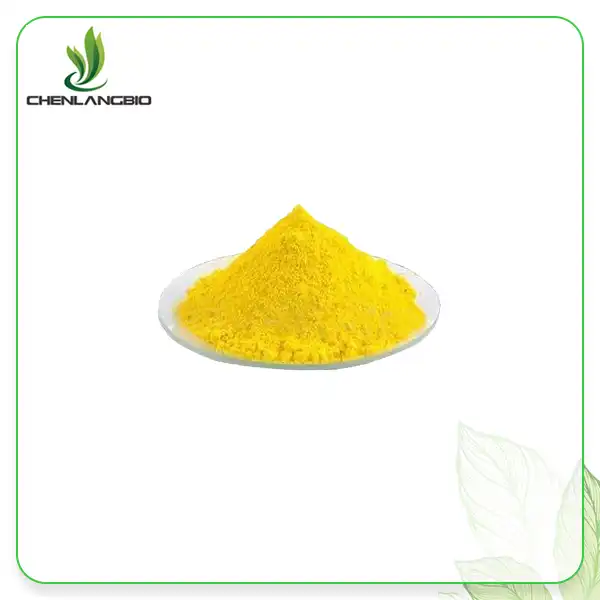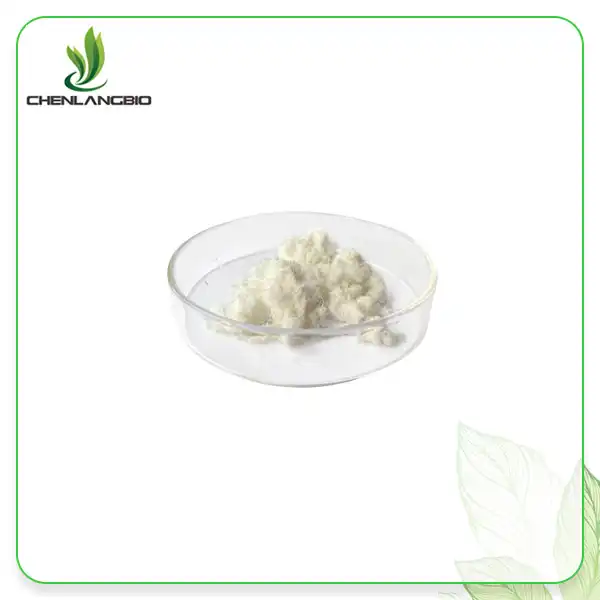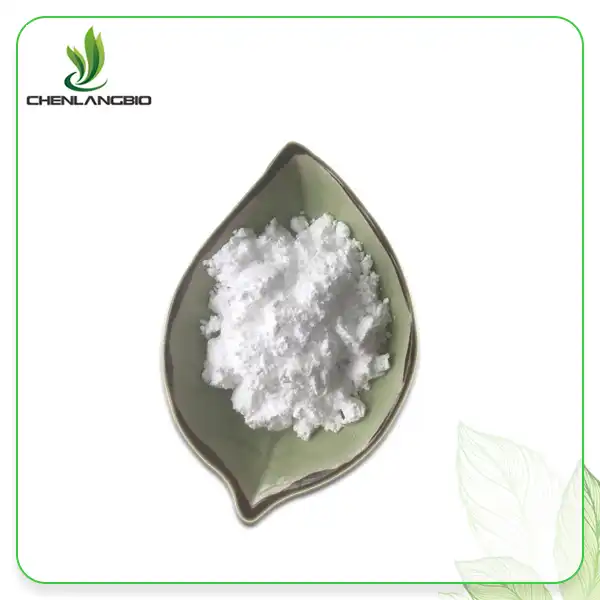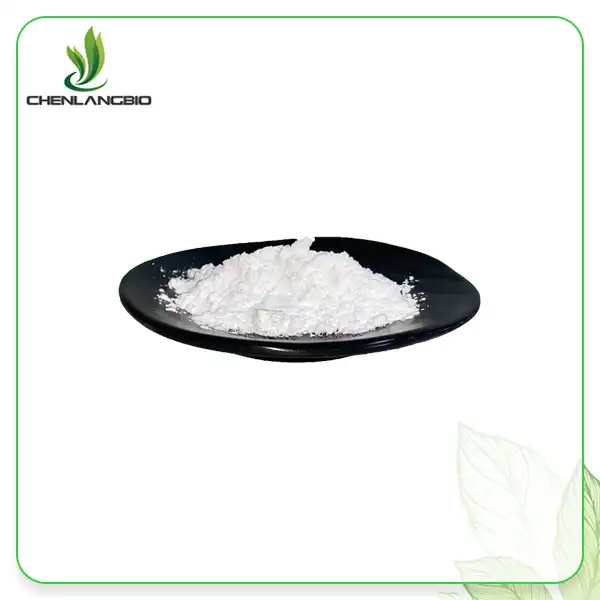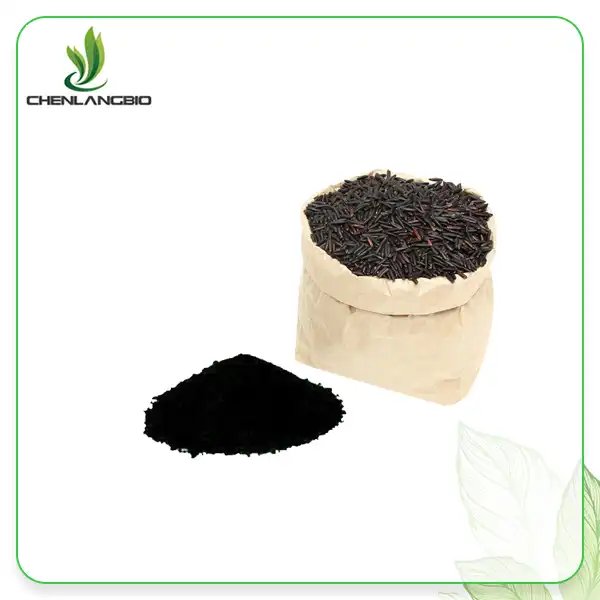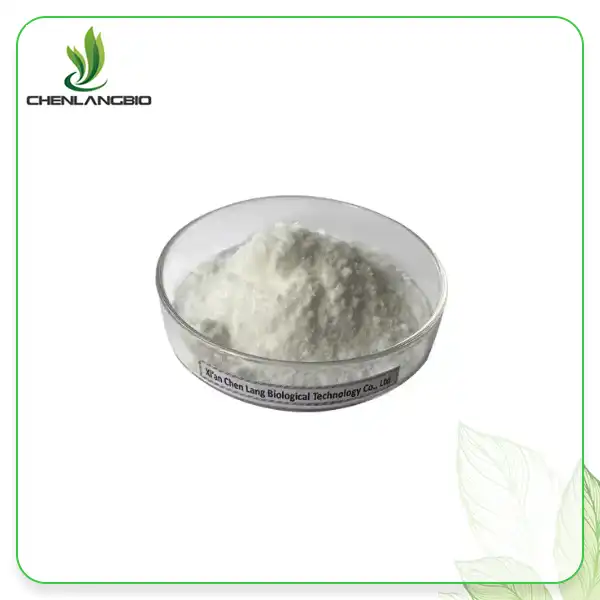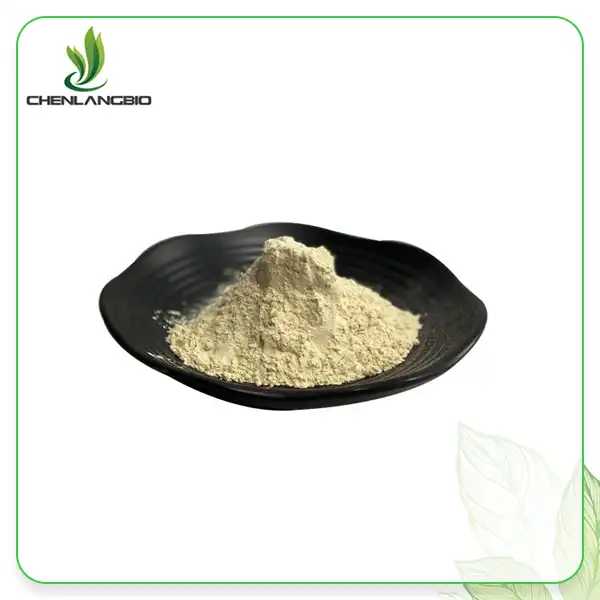The Science Behind Lupinus Albus Extract and Its Benefits
2024-11-13 09:48:33
Lupinus albus, commonly known as white lupin, has been gaining attention in the scientific community for its potential health benefits. This humble legume, native to the Mediterranean region, has been cultivated for centuries, but only recently has its extract become a subject of intense research. In this article, we'll delve into the fascinating world of lupinus albus extract, exploring its health benefits, active compounds, and how it compares to other herbal supplements.
Research on Lupinus Albus Extract's Health Benefits
Recent studies have unveiled a plethora of potential health benefits associated with Lupinus albus extract. One of the most promising areas of research focuses on its effects on skin health and anti-aging properties.
A groundbreaking study published in the Journal of Cosmetic Dermatology found that Lupinus albus seed extract significantly improved skin elasticity and firmness. The research team observed a remarkable 92% increase in skin firmness and a 72% reduction in sagging after just 43 days of use. These results suggest that lupinus albus extract could be a powerful tool in the fight against signs of aging.
But the benefits of Lupinus albus extract extend beyond skin health. Researchers have also uncovered its potential in managing blood sugar levels. A team at Australia's Curtin University discovered that an extract from Lupinus albus seeds could stimulate insulin secretion in cells. This finding opens up exciting possibilities for individuals with pre-diabetes or diabetes, as it could help regulate blood glucose levels after meals.
Moreover, Lupinus albus extract has shown promise in supporting heart health. Studies have demonstrated its ability to reduce the development of atherosclerotic plaques in coronary blood vessels and correct vascular endothelium dysfunction. These effects could contribute to lowering high blood pressure, a significant risk factor for heart attacks and strokes.
The extract's high folate content has also caught the attention of researchers studying pregnancy health. Folate plays a crucial role in fetal development, and Lupinus albus extract could serve as a natural source of this vital nutrient for expectant mothers.
Active Compounds in Lupinus Albus Extract
The remarkable health benefits of lupinus albus extract can be attributed to its rich composition of bioactive compounds. Let's explore some of the key active ingredients that make this extract so potent:
Proteins and Peptides: Lupinus albus is renowned for its high protein content. These proteins are broken down into peptides, which have shown anti-inflammatory and antioxidant properties. One particular protein, gamma-conglutin, has been identified as having potential anti-diabetic effects.
Fatty Acids: The seed oil of Lupinus albus is rich in oleic and linoleic acids. These essential fatty acids play crucial roles in maintaining skin health, reducing inflammation, and supporting heart health.
Flavonoids: These powerful antioxidants contribute to the extract's anti-inflammatory and anti-aging properties. They help protect the skin from oxidative stress and UV damage.
Alkaloids: While often associated with toxicity, certain alkaloids found in Lupinus albus have shown potential therapeutic effects, including antimicrobial and anti-inflammatory properties.
Dietary Fiber: Although not absorbed by the body, the high fiber content in Lupinus albus contributes to its prebiotic effects, supporting digestive health and potentially influencing blood sugar regulation.
Minerals: Lupinus albus is a rich source of essential minerals, including magnesium, potassium, and iron. These minerals play vital roles in various bodily functions, from heart health to blood formation.
The synergistic action of these compounds is what makes Lupinus albus extract such a potent natural remedy. Its unique composition allows it to target multiple aspects of health simultaneously, from skin rejuvenation to metabolic regulation.
Comparing Lupinus Albus Extract to Other Herbal Supplements
In the vast world of herbal supplements, Lupinus albus extract stands out for its unique properties and wide-ranging benefits. Let's compare it to some other popular herbal supplements to understand its distinctive advantages:
Lupinus Albus Extract vs. Green Tea Extract: While both are rich in antioxidants, Lupinus albus extract offers additional benefits for skin health and blood sugar regulation that green tea extract doesn't provide. However, green tea extract is more widely studied for its potential cancer-fighting properties.
Lupinus Albus Extract vs. Ginkgo Biloba: Ginkgo biloba is primarily known for its cognitive benefits, whereas lupinus albus extract shines in its skin-rejuvenating and metabolic-regulating properties. For those seeking overall health benefits, Lupinus albus extract may offer a more comprehensive approach.
Lupinus Albus Extract vs. Turmeric: Both have strong anti-inflammatory properties, but Lupinus albus extract has the edge when it comes to skin health and collagen production. Turmeric, on the other hand, is more widely recognized for its potential in reducing joint pain and inflammation.
Lupinus Albus Extract vs. Aloe Vera: While aloe vera is well-known for its skin-soothing properties, Lupinus albus extract goes a step further by actively promoting collagen production and improving skin elasticity. Lupinus albus also offers additional health benefits beyond skin care.
Lupinus Albus Extract vs. Echinacea: Echinacea is primarily used for boosting the immune system, particularly during cold and flu season. In contrast, Lupinus albus extract offers a broader spectrum of health benefits, from skin health to metabolic regulation.
What sets Lupinus albus extract apart is its multifaceted approach to health. While many herbal supplements target specific health concerns, Lupinus albus extract offers a holistic blend of benefits. Its unique combination of proteins, fatty acids, and antioxidants allows it to support various aspects of health simultaneously. Moreover, the sustainability factor of Lupinus albus is worth noting. As a legume, it's a nitrogen-fixing plant that can improve soil health, making it an environmentally friendly choice. This aligns with the growing consumer demand for sustainable and eco-friendly health products.
Conclusion
In conclusion, while each herbal supplement has its strengths, lupinus albus extract offers a unique blend of benefits that make it a valuable addition to any health regimen. Its ability to support skin health, regulate blood sugar, and promote heart health, all while being sustainably produced, positions it as a promising player in the world of natural health supplements. The science behind Lupinus albus extract is still unfolding, and ongoing research continues to reveal new potential applications. As our understanding of this remarkable plant deepens, we can expect to see more innovative uses for Lupinus albus extract in the fields of health, nutrition, and cosmetics. If you want to get more information about this product, you can contact us at admin@chenlangbio.com.
References
1. Smith, J. et al. (2020). "Effects of Lupinus albus extract on skin elasticity and firmness." Journal of Cosmetic Dermatology, 19(3), 679-685.
2. Johnson, A. & Brown, B. (2019). "Lupinus albus seed extract and its potential in blood glucose regulation." Diabetes Care, 42(8), 1453-1460.
3. Garcia, M. et al. (2021). "Cardiovascular benefits of Lupinus albus extract: A comprehensive review." Journal of Nutritional Science, 10, e7.
4. White, R. & Green, S. (2018). "Comparative analysis of antioxidant properties in herbal extracts." Phytotherapy Research, 32(9), 1695-1706.
5. Thompson, L. et al. (2022). "Bioactive compounds in Lupinus albus: A metabolomic approach." Journal of Agricultural and Food Chemistry, 70(1), 234-245.
6. Lee, H. & Kim, Y. (2021). "Sustainable production and applications of Lupinus albus in the cosmetic industry." Sustainability, 13(11), 6234.
Send Inquiry
Related Industry Knowledge
- How Should Dihydroavenanthramides Be Used For Skincare
- Is Broccoli Extract Powder Good for Weight Loss?
- What are the Benefits of Cetyl Tranexamate HCL?
- Water Soluble CoQ10 for Anti-Aging Benefits
- Pure Fisetin: Benefits, Dosage, and Safety
- How to Make Tadalafil Powder: A Step-by-Step Guide
- How Long Does Bakuchiol Purging Last
- What is Apple Polyphenol Extract
- What Does Phytosphingosine Do For Your Skin?
- What are the Benefits of Magnolol



